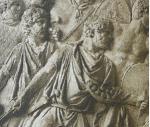You are here
Which humans, what rights?
Feb 03,2019 - Last updated at Feb 03,2019
“What is the most important aspect of human rights?” I asked my 18-year-old son. With barely a moment’s hesitation he answered: “Universality”.
This response sums up the founding principle of human rights, that each human being possesses certain inalienable rights simply because he/she is a human, irrespective of national background, religious or political views, gender or age.
Nelson Mandela asserted this by saying: “To deny people their human rights, is to challenge their very humanity.”
But universalism, the claim that human rights are universal principles, is only one side of a debate that has raged since the UN General Assembly adopted the Universal Declaration of Human Rights in 1948.
A recent manifestation of this debate was the exchange between the presidents of France and Egypt at their joint press conference on January 28. Responding to French President Emmauel Macron's criticism of Egypt’s human rights record, President Abdel Fattah Sisi said: "Egypt does not advance through bloggers. It advances through the... perseverance of its sons."
Sisi’s response and, even more significantly, the enthusiasm with which it was met by Arab bloggers and Tweeters highlight the reasons why human rights are not a high priority for many governments and peoples.
Human rights were developed by the Western victors in World War II in response to the atrocities of that war, which were committed largely by other Westerners in fulfilment of another Western ideology that is not dead in the West, even today.
Non-Westerners, who were not consulted on the matter, believe that human rights clash with their cultural mores, which often overlap with their religious beliefs. One example is the rejection in the Middle East of all attempts to promote acceptance of gay rights. Similarly, people reject attempts to abolish so-called crimes of honour which, they believe, are supported by the tenets of Christianity and Islam, even after priests and imams have condemned these crimes.
Additionally, because advocates of human rights are largely Western countries, non-Westerners consider universalism as another form of imperialism; hence Sisi’s distinction between bloggers, who implicitly advocate the Western principles of human rights to supersede local culture, on the one hand, and on the other the good sons of Egypt who strive for its progress.
Human rights are further discredited by the fact that the most vociferous advocates of human rights have not been entirely sincere in respecting the standards they preach. We are less than a decade away from the days when acts of torture, such as waterboarding, were openly defended and given politically correct euphemisms such as “dunking terrorists to protect human lives”.
Yet, the great danger in asserting that human values vary according to different cultures, is that this claim is often used to justify human rights abuses by linking them to a society’s customs.
Ultimately, this leads to the moral decline described in George Orwell’s “Animal Farm”, where the egalitarian revolution by animals against human repression eventually replaces its slogan “all animals are equal” with the slogan: “All animals are equal, but some animals are more equal than others.”












